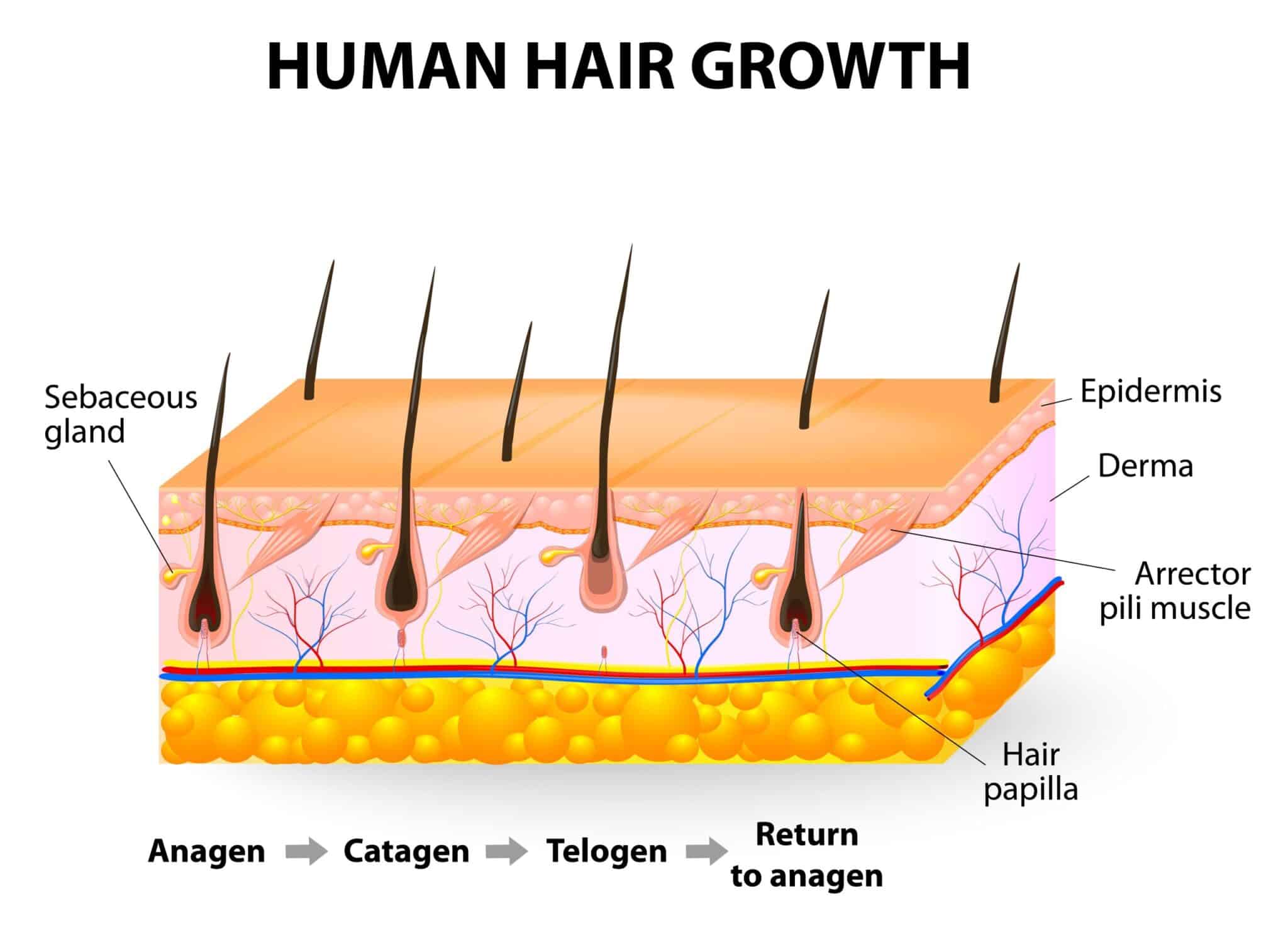Postpartum hair loss is a normal postpartum condition that many women experience after giving birth. Read on to find out all about this temporary change.
Are You Experiencing Postpartum Hair Loss? You Are Not Alone
As a new mother, we’re sure that your life has undergone many changes, and hair fall is one of them. Also known as Telogen Effluvium, postpartum hair loss is the excessive shedding of hair that happens one to five months after childbirth.
But not to worry, you’re not going bald! Hair loss after pregnancy is completely normal. Between 40 and 50 percent of women experience postpartum hair loss according to the American Pregnancy Association.
What Causes Hair Loss During Postpartum?
For you to better understand the science behind the cause of your postpartum period hair loss, allow us to break down the normal hair growth cycle for you.
Normal cycle of hair growth
-
Anagen: Growing phase
-
Telogen: Resting phase
-
Catagen: Shedding phase

During pregnancy, the prolactin, estrogen and progesterone hormone levels cause all of your hair to shift into the anagen phase (growth phase) from the telogen phase (resting phase). This demonstrates why most pregnant women grow exceptionally voluminous and thick hair, and barely experience hair shedding.
After childbirth when your hormone levels normalise, most of your hair becomes active again and shifts back into the telogen phase. During this period, hairs undergo the catagen stage (shedding phase) where shedding occurs before returning to the normal hair growth cycle. As normal hair loss is interrupted during pregnancy, hairs experience massive shedding all at once post-pregnancy.
Can I prevent Postpartum Hair Loss?
Although postpartum hair loss is a common experience for most new mothers, here are some steps you can take to minimise hair loss.
-
Be gentle with your hair
Post-pregnancy is when most of your hair follicles enter the resting phase. During that phase, the hair follicles are in their most fragile state and can fall easily and result in excessive hair loss if not taken care of properly.
Always be gentle with your hair during hair care like brushing, washing and drying to avoid the chances of premature shedding. You may even choose to use a silk pillowcase to make sure that your hair is not pulled out in your sleep.
-
Keep up a healthy diet
While hormonal changes during pregnancy are typically unavoidable, nutritional changes can be maintained to prevent it from interfering with the healthy hair growth cycle. When the body experiences a nutrient imbalance, it shifts energy from unessential functions like hair growth to essential function organ functions like the heart, lungs and brain.
Make sure to consume a well-balanced diet with plenty of minerals, vitamins, proteins, fruit and vegetables to limit the extent of your post-pregnancy hair loss.
-
Minimise stress
We’re sure that taking care of a newborn can be an exhausting and stressful time. However, stress hormones such as cortisol can harm your hair cycle. Take some time off for yourself to relax. Pamper yourself with a massage or spa day to reduce stress levels.
-
Change your hairstyle
It’s common for new moms to change their hairstyle from long hair to a shorter, easier-to-manage hairstyle that requires less care post-pregnancy. Not only does shorter hair help to hide hair thins, but also helps to blend newly grown hair with the existing hair allowing them to grow out together.
How Long Does Postpartum Hair Loss Last?
Postpartum hair loss can occur right after birth, and can continue for as long as a period of 12 months postpartum. Hair shedding typically peaks at the 4-month mark so please do not start to panic when you notice more large clumps of hair shedding over time.
How Much Hair Shedding Is Normal?
Although the condition causes your hair to shed a significant amount, it is not serious enough to cause permanent hair loss or bald spots. Postpartum hair loss normally lasts for 12 months after childbirth. If you feel that you notice unusual excessive hair loss, you should speak with your trichologist or book an appointment with our Papilla By Kim Lim staff for a postpartum hair loss consultation.
How do I treat Postpartum Hair Loss?
Although there are many natural methods like eating healthy and decreasing stress to minimise postpartum hair loss, these methods may not work for everyone. If you feel that you are experiencing unusual severe hair loss postpartum, then it is probably time to speak with your trichologist.
At Papilla By Kim Lim, we provide a range of postpartum hair treatments that are safe and effective, even for breastfeeding moms. As our treatments are non-invasive and comfortable, contact us today to take a break from taking care of your little one and pamper yourself, while looking after your tresses.



